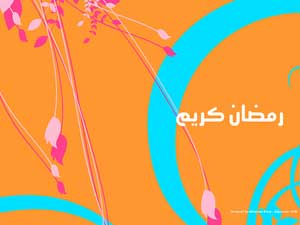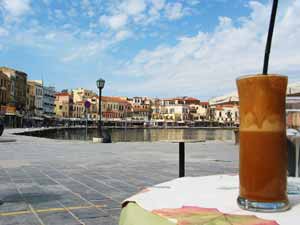*Αχμαντ Ελντιν
Ο μήνας της ευλογίας ξεκινάει την Δευτέρα πρώτη του μηνός το 2008. Ο μήνας του Ραμαζανίου. Ο μήνας στον οποίον οι Μουσουλμάνοι νηστεύουν για 30 συνεχόμενες μέρες. Σε αυτό το άρθρο θα δώσουμε όσο το δυνατόν μια σύντομη και ταυτόχρονα ολοκληρωμένη εικόνα για το Ραμαζάνι, την νηστεία του Ισλάμ.
Τι είναι το Ραμαζάνι;
Κάθε πιστός Μουσουλμάνος είναι υποχρεωμένος να νηστέψει τον ιερό μήνα του ραμαζανιου. Ο μήνας αυτός είναι σημαντικός και ιερός για τον λόγο ότι το Ιερό Κοράνι αποκαλύφθηκε (ένα μέρος του) σε μια από της νύχτες του ραμαζανιου στον Προφήτη Μουχαμαντ.
Το ραμαζάνι αρχίζει και τελειώνει σύμφωνα με το σεληνιακό ημερολόγιο όπου έχει περίπου 11 ημέρες λιγότερες από το ηλιακό, έτσι λοιπόν ο μήνας του Ραμαζανιου πέρνα διαδοχικά μέσα από όλες τις εποχές του χρόνου, πράγμα που το κάνει να είναι μια κινητή νηστεία.
Η νηστεία αρχίζει από την ανατολή του ηλίου μέχρι και την δύση του. Κατά την διάρκεια της νηστείας( ανατολή μέχρι δύση του ηλίου) ο πιστός απέχει από το φαγητό από το ποτό και την σεξουαλική επαφή, επιτρέπονται όμως από την δύση μέχρι και την επόμενη ανατολή.
Η νηστεία διδάσκει τον αυτοέλεγχο, την υπομονή. Η νηστεία θεωρείτε σαν προσευχή, ένας τρόπος απόδοσης ειλικρινείς λατρείας στον Θεό.
Το Κοράνι λέει
Ω! Σεις που πιστεύετε! Η νηστεία έχει επιβληθεί σε σας όπως έχει επιβληθεί στους προγόνους σας. Μήπως και θα απομακρυνθείτε από τα αμαρτήματα. ( Κοράνι 2: 183)
Όπως βλέπουμε και από το χωρίο του Κορανίου, η νηστεία έχει επιβληθεί στον πιστό για να τον προστατέψει από την αμαρτία, το λάθος, το κακό. Κατά την διάρκεια της νηστείας ο άνθρωπος είναι πιο κοντά στον Θεό και από φόβο η ακόμα και ντροπή δεν αμαρτάνει και δεν αγγίζει το κακό. Επίσης η νηστεία κάνει τον άνθρωπο να απωθεί την αμαρτία και ότι οδηγούν σε αυτήν. Με άλλα λόγια η νηστεία λειτουργεί σαν μια προστατευτική ασπίδα για τον πιστό.
Οι μέρες της νηστείας είναι μετρημένες. Αν όμως κανείς από σας είναι άρρωστος ή ταξιδεύει τότε να νηστέψει, αργότερα τις ανάλογες μέρες. Κι όσοι μπορούν να νηστέψουν και δεν το κάνουν,18 τότε να δώσουν για εξιλασμό αρκετή τροφή σ’ ένα φτωχό. Κι όποιος θεληματικά δώσει περισσότερα, τόσο καλύτερα γι’ αυτόν. Κι αν μόνο ξέρατε. πόσο καλύτερο είναι για σας, θα νηστεύετε! ( Κοράνι 2: 184)
Εδώ βλέπουμε πως ο Θεός εξαιρεί κάποια άτομα από την νηστεία. Ο άρρωστος και ο ταξιδιώτης είναι από αυτούς, πρέπει όμως μετά όπου θα θεραπευτούν η γυρίσουν από το ταξίδι τους να νηστέψουν τις μέρες που χάσανε.
Σε αυτό το κομμάτι πρέπει να τονίσουμε ότι εξαίρεση επίσης αποτελούν οι γυναίκες οι οποίες έχουν την μηνιαία τους περίοδο, καθώς και οι γυναίκες οι οποίες κυοφορούν. Επίσης ο κάθε ένας που αντιμετωπίζει σοβαρό πρόβλημα υγείας και δεν είναι υγιεινό να νηστέψει τότε δικαιολογείται να απέχει.
Το Κοράνι λέει
Το Ραμαντάν (Ραμαζάνι) είν’ ο μήνας που εστάλη κάτω το Κοράνιο σαν Οδηγός στο ανθρώπινο γένος, με φανερά σύμβολα από τη καθοδήγηση και το κριτήριο ανάμεσα στο καλό και το κακό. Ώστε, όποιος από σας έμαθε ότι άρχισε ο μήνας (Ραμαζάνι), τότε πρέπει να νηστέψει. Αν όμως είναι άρρωστος ή σε ταξίδι, (και δεν νηστεύει), τότε να νηστέψει αργότερα τις ανάλογες μέρες. Ο ΑΛΛΑΧ επιθυμεί για σας κάθε ευκολία, και δεν θέλει να σας βάλει σε δυσκολίες. ( Κοράνι 2:185)
Εδώ περιγράφεται η ευλογιά του μήνα του Ραμαζανίου, και ο λόγος είναι ότι σε αυτόν τον μήνα άρχισε ο Θεός να αποκαλύπτει το Κοράνι. Ο προφήτης Μουχαμαντ μας πληροφορεί ότι και τα αλλά θεϊκά βιβλία αποκαλύφθηκαν σε αυτόν τον μήνα όπως το Ευαγγέλιο, το Τοραχ, και τα Σουχουφ του Αβρααμ
*Tikaras.WordPress.Com – Ισλαμική Απολογητική Και Ενημερωτική για το Ισλάμ.






 Did the prophet (saws) or the sahaba ever do that? NO! Not that I know of anyway. I showed it to an Arab and we both started laughing out of the ridiculousness of it all but the thing is my Arab friend didn’t really get why they would do such a thing. Me, being Greek, I understand that they, in essence, just copied what the Greek church does at the end of their service and “Islamified” it with nasheed and dua to replace the the “chanting” of the Bible verses in Greek plus the lining of the people to kiss the priest’s hand and recieve the bread that was “blessed”.
Did the prophet (saws) or the sahaba ever do that? NO! Not that I know of anyway. I showed it to an Arab and we both started laughing out of the ridiculousness of it all but the thing is my Arab friend didn’t really get why they would do such a thing. Me, being Greek, I understand that they, in essence, just copied what the Greek church does at the end of their service and “Islamified” it with nasheed and dua to replace the the “chanting” of the Bible verses in Greek plus the lining of the people to kiss the priest’s hand and recieve the bread that was “blessed”.







